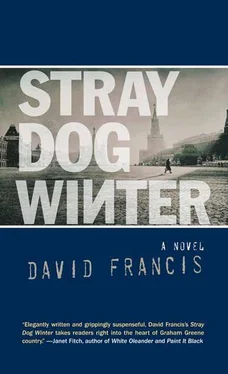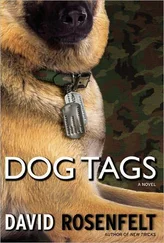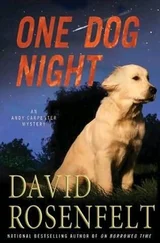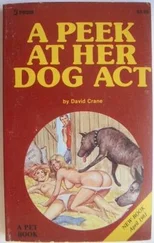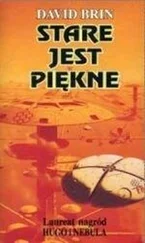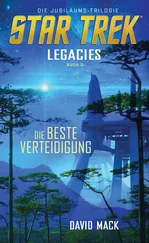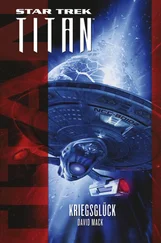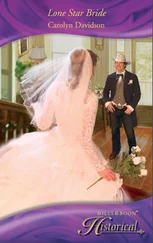The general jerked up his pistol hand. Lyevii , he said, nudged at Aurelio’s neck with the short black barrel, shouted gruff Russian instructions. Aurelio turned left down a dark road, turned off the lights. Darcy guessed the main road had taken them away from the river; they’d not crossed a bridge, but headed back now to where the vanishing river must be. We find your friends, said the general. We make visit. He turned to Aurelio. KGB, we know how to follow. Don’t we, son? First we already follow your little boy blue to his secret restaurant.
Aurelio’s silence scared Darcy. He drove like an automaton, only the shadowy parking lights of the Lada on what was now a narrow snowy track, the sound of the tyres crawling into the stillness. Dark in the car now, Darcy clasped the knife in the folds of his coat but the knife felt ineffectual. He’d need to strike the general’s eye, or his ear, but the general kept waving the gun like a finger, turning. With a canny smile, he offered a zippered bag to Darcy.
The Turk, he kill for this, he said. His tongue glistened as it lay on his teeth and Darcy thought of Lubyanka, and the ferret-faced boy lying dead behind the restaurant—he knew how the Turk had killed. The burn still throbbed like the head of a spear broken off in his neck as the general’s mammoth ungloved hand dangled the evidence bag over the seat like another last promise.
Did Tugrul tell you about Tbilisi? he asked. Your sister in Tbilisi? Just day before yesterday. Maybe we find her any minute. Family reunion… with fireworks.
A horrible dryness returned to Darcy’s mouth, his teeth as if covered in cloth; he didn’t want to know any more. The prospect of a fire on the river ice, he and Aurelio lined up with Fin and her dissident Armenians. Darcy searched the shadowy back of Aurelio’s head, his shoulders still rigid, unyielding as a costumer’s dummy. The general dropped the bag down in Darcy’s lap. It was light, almost floated. Just paper.
I can’t read, said Darcy.
Aurelio cleared his throat but the general barked at him sharply, scolding, then turned back to Darcy. It is English, he said, placing his elbow over the seat. He cocked a silver cigarette lighter, his face like a ghoul’s in the fluttery flame, and Darcy thought to stab those fingers if the flame came near his face. He cagily held up the evidence bag, the thought of it burning, a decoy for Aurelio, a chance, but in the jittery light a date: July 13, 1915 . American Ambassador, Constantinople. Typewritten, faded, beige letterhead frayed in the folds and corners. Old and authoritative.
You know this? asked the general. Is it original or forgery?
Darcy looked at the cream paper behind the plastic, the ridges of the seal. Index Bureau , stamped with an official seal, to Robert Lansing, US Secretary of State.
I never saw this.
A copy is left with the body of the dead Consul Turk in Tbilisi. The general a shifted personality, not the drunk transgressor but probing. This one they try to deliver to manuscript museum in Yerevan. You ever go to Yerevan?
Darcy didn’t answer, felt the night crawling by, his life, the lives of dead Armenians. He wasn’t even sure where Yerevan was but he was drawn to the undulating typeface. Persecutions assuming unprecedented proportions. Uprooting, tortures and wholesale expulsions accompanied by rape, pillage and murder turning into massacre, to bring destruction and destitution on them. Leviticalsounding words. Initials above a signature stamp. Lawrence Andersen, United States Ambassador to Turkey. In the margin he read Classified . Could it not be real? He directed his eyes to the general, who looked back at him with a predatory disdain.
You bringing this to Moscow, he said. Strapped to yourself like suicide. But you never saw it?
Darcy felt his own head shake, dubious and slow, as he lifted the plastic flap, the page where it creased, and knew it could have been folded, sewn into the lining of the money belt. In the pit of his stomach he believed it was true.
You very clever, said the general, or very stupid. He flicked the lighter off and muttered into a miniature speaker held between fingers, men out in snow flurries still tracking Fin. Darcy heard her phone voice, the night she’d called in Melbourne, offering him a chance, sensing his suspicion, her faith in his need to escape that world, believing he’d come. And he had known even then it was stupid. Now, he cradled the old document in the dark, its red stamp embossed like the burn on his neck. If he’d been part of something, that something was over.
Aurelio stopped the car where the track dead-ended, glanced up at the rear-view mirror but Darcy couldn’t make out his eyes, just the sound of the other car pulling in quietly behind them. He felt a strange surrender, a momentary transcendence of fear. Aurelio? he said softly, but Aurelio still didn’t turn, it was the general who swung over the seat back, dark wild eyes and his pistol shoving at Darcy’s face. You never speak with him, he said. You hearing? You do what I tell. Darcy reefed back from the small black barrel, his eyes so tight they burrowed deep inside him until he could feel his lips open, but he heard no shot, only words. You will walk through those trees. You will see a house. You knock on door.
Stoitye . Aurelio’s muffled voice, and Darcy looked up as the general grunted, pistol-whipped his son against the driver’s door, and Aurelio lay there, one arm draped over the wheel, horribly still. Darcy’s instinct to run out into the darkness, out through the shadows of others, out of their cars, the Turk and the pastel-eyed henchman, men in black felt coats. The general half turned.
Look what you do, he said, a quaver in his voice. He try to save you. But he cannot even save himself. As the general opened the door to get out, the interior light sparked on Aurelio’s face and Darcy’s eyes filled with a sudden revulsion—the cuts in Aurelio’s cheeks like mutilations, not fresh from the pistol, but his mouth, scabby and black, sliced up his cheek on one side, sewn together by rough string stitches. Darcy understood why Aurelio hadn’t turned—too proud to be seen, a mouth so wounded he didn’t open it except to shout stop, to lunge at his father’s pistol arm. The general mumbled in Russian, an oath or a prayer, then closed the door.
Darcy sat inconsolably still in the blackness. Aurelio? he said, but Aurelio just hummed as if soothing himself, and Darcy began to rock as he’d done as a boy, side to side, holding his body together. Are you okay? he asked, but only heard humming. He closed his eyes tight, didn’t look at Aurelio, then he turned to the window, the sight of the general peeing in the snow, in front of his men, delivering instructions. Painting a yellow dog, Fin had called it, pissing in the snow, the same name as the flowers. He yearned to reach through the dark and touch Aurelio now, trace about his eyes, the scars, but instead he just rocked and stared at his friend’s silhouette, the snow as it kissed the window beside him, the murmuring of the KGB men outside, unaware. Then he heard the howl of a dog, far off, calling out through the snow, and the onslaught of something, grief, or a love that had lost its way, rested about the edges of Darcy’s eyes, as if on the lip of a dam, and then he was keening, swaying like a branch, and howling softly with the dog but the door was flung open and the general’s hand slapped him from it.
You listen to me, said the general, panicky, grabbing Darcy’s collar, ripping it against the burn as Darcy stuffed the document inside his coat. You will walk into these woods and show your friends this paper. You will see their faces, he said. Then he said something in Russian that stopped Aurelio’s hum. He reached into the front seat, ripped the fur hat from Aurelio’s head as if he were a mannequin, and Darcy saw that Aurelio’s head had been shaved.
Читать дальше
